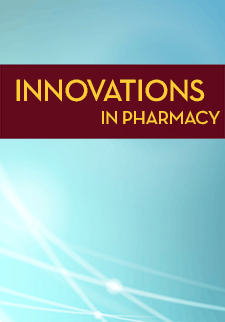Impact of an interdisciplinary patient care model and routine screening on clinical outcomes in patients with hepatitis C
Dr. Vincent Lam, PharmD
Rutgers University Ernest Mario School of Pharmacy
Dr. Christine Dimaculangan, PharmD, BCACP
Rutgers University Ernest Mario School of Pharmacy; Jersey City Medical Center
DOI: https://doi.org/10.24926/iip.v14i2.5114
Keywords: hepatitis c, interdisciplinary, routine screening, telehealth
Abstract
Testing for hepatitis C in hospital emergency departments (ED) and linkage to care to clinics have been reported to provide the most opportunity for screening patients and facilitating continuum of care. Treatment model initiatives have expanded to include telehealth services and open treatment capacity to non-physician providers, such as pharmacists. This study’s objective is to assess the impact of implementing automated routine screening for hepatitis C virus (HCV) and a clinical pharmacist into the interdisciplinary care model on HCV diagnosis and treatment outcomes.
This retrospective cohort study compared outcomes in a pre-intervention and post-intervention group. Patients were screened and diagnosed with HCV at Jersey City Medical Center (JCMC) and completed linkage to care at JCMC Center for Comprehensive Care. Interventions were the implementation of automated routine HCV screening in the ED and addition of a clinical pharmacist to the interdisciplinary patient care model. Primary Endpoints analyzed the number of patients who have achieved sustained virologic response after 12 weeks of treatment (SVR12) and patients who have completed treatment with no reported record of SVR12. Secondary Endpoints analyzed the number of patients lost to follow-up, appointment type, time spent in appointments, and clinical pharmacist specialist interventions. Data was collected as categorical variables and chi-squared tests assessed if there were differences between the two samples.
Data was collected from 46 patients in the pre-intervention group and 37 patients in the post-intervention group. Patients consisted of mostly males. Ages ranged from 27 to 83 years old. Race and ethnicities included Black, White, Asian, and Other.
This study’s results show the positive impact on implementation of routine screening, telehealth services, and an interdisciplinary team approach to HCV diagnosis and management. Given the timeframe, it also shows the potential positive impact on these interventions during a global pandemic.
Downloads
Author Biographies
Dr. Vincent Lam, PharmD, Rutgers University Ernest Mario School of Pharmacy
Vincent Lam, PharmD is originally from Galloway, NJ. He received his Doctor of Pharmacy Degree at Rutgers University Ernest Mario School of Pharmacy. He is currently completing his PGY-1 Residency Training at GLFHC/MCPHS University with clinical interests in ambulatory care, chronic disease management, HIV, and Hepatitis C.
Dr. Christine Dimaculangan, PharmD, BCACP, Rutgers University Ernest Mario School of Pharmacy; Jersey City Medical Center
Christine Dimaculangan, PharmD , BCACP is originally from Jersey City, NJ. She received her Doctor of Pharmacy degree from the Philadelphia College of Pharmacy at the University of the Sciences in Philadelphia, PA. She completed her PGY-1 Pharmacy Residency Training at GLHFC/MCPHS University and completed her PGY-2 Training in Ambulatory Care at the University of Maryland School of Pharmacy in Baltimore, MD. She currently holds a position as a Clinical Assistant Professor at Ernest Mario School of Pharmacy at Rutgers University. Her clinical practice site is at the Center for Comprehensive Care (an affiliate of Jersey City Medical Center). She collaborates with a multidisciplinary team, managing chronic diseases (such as diabetes, hypertension, and dyslipidemia) in the setting of HIV and Hepatitis C.



